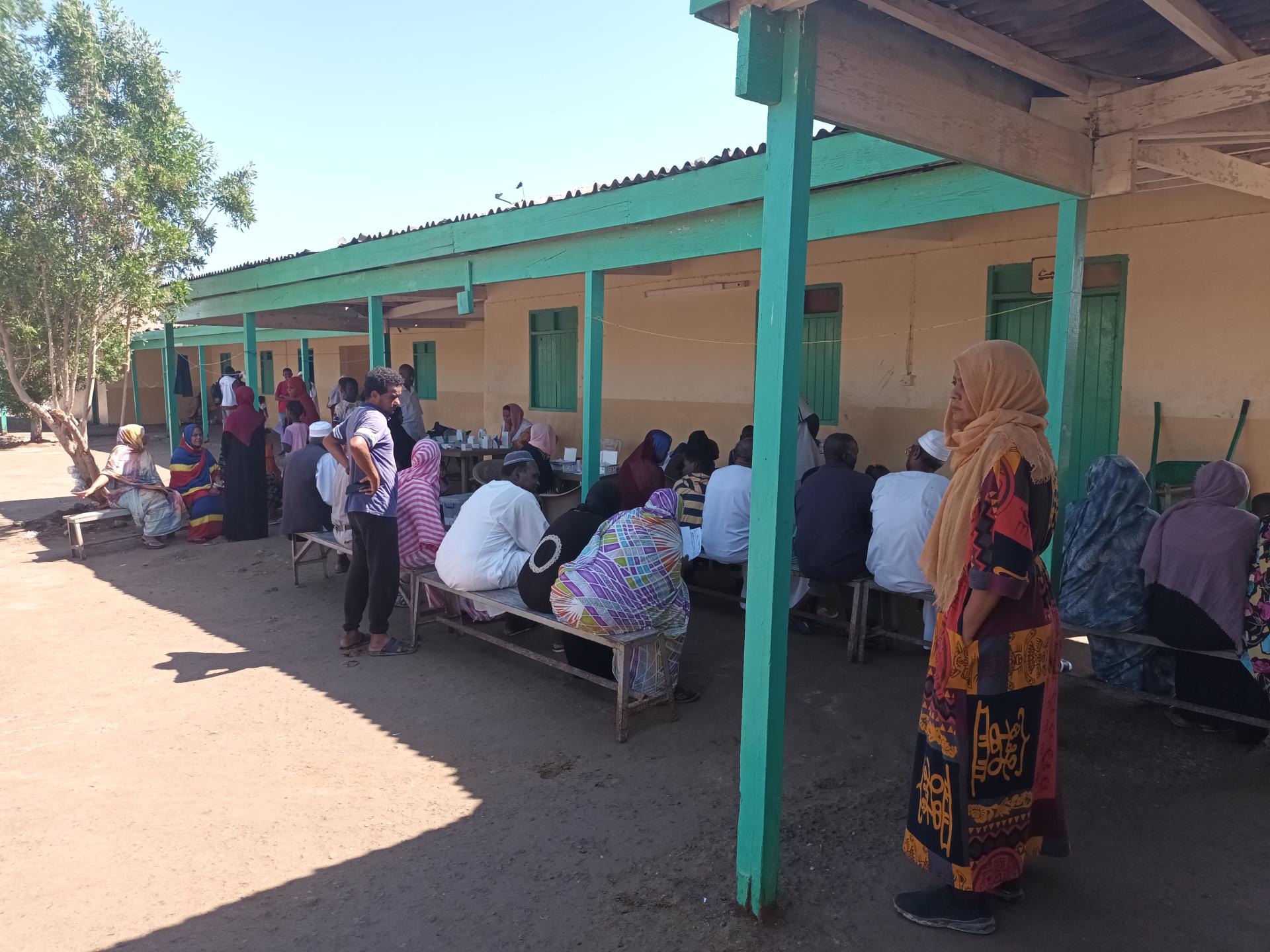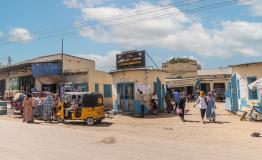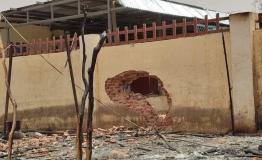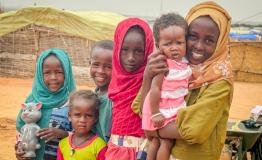Since January 28 and continuing through the end of March, our team has initiated an emergency response in Port Sudan, Red Sea State, for internally displaced people who recently arrived from Wad Madani, Aljazera State.
Most of them have been displaced multiple times since the beginning of the war, originally from various states including Khartoum, before settling in Wad Madani and then having had to move again to Port Sudan in December 2023.
Agile Response
The school compounds have become a refuge for thousands of the recently displaced Sudanese, housing entire families—mothers, fathers, and children who find it peculiar to reside in a place meant for education, not shelter.
Among them is Hiba, a Sudanese child of primary school age, who told our health promoter, "I cannot go to school, you see the conditions we're in. I am sad as I am detached from places and people I had gotten used to being with. I miss reading; I miss my friends. I am living here now, and I do not understand how a school can become a home."
Out of 64 assessments conducted by our teams, we provided support to approximately 49 sites that are sheltering more than 5,000 displaced persons, predominantly in school premises. Our teams have focused on providing emergency medical care and hygiene while advocating for adequate water supply and food distribution from other humanitarian partners.
Through mobile clinics rotating in the displacement gathering sites, we have delivered a range of services including outpatient consultations, sexual and reproductive health, malnutrition screening, surveillance of diseases with outbreak potential (such as measles, polio, malaria, dengue fever, and cholera), as well as the referral of patients with life-threatening medical emergencies to Port Sudan Teaching Hospital. So far, we have seen more than 1,500 persons and treated ±1,300 patients in our mobile clinics.
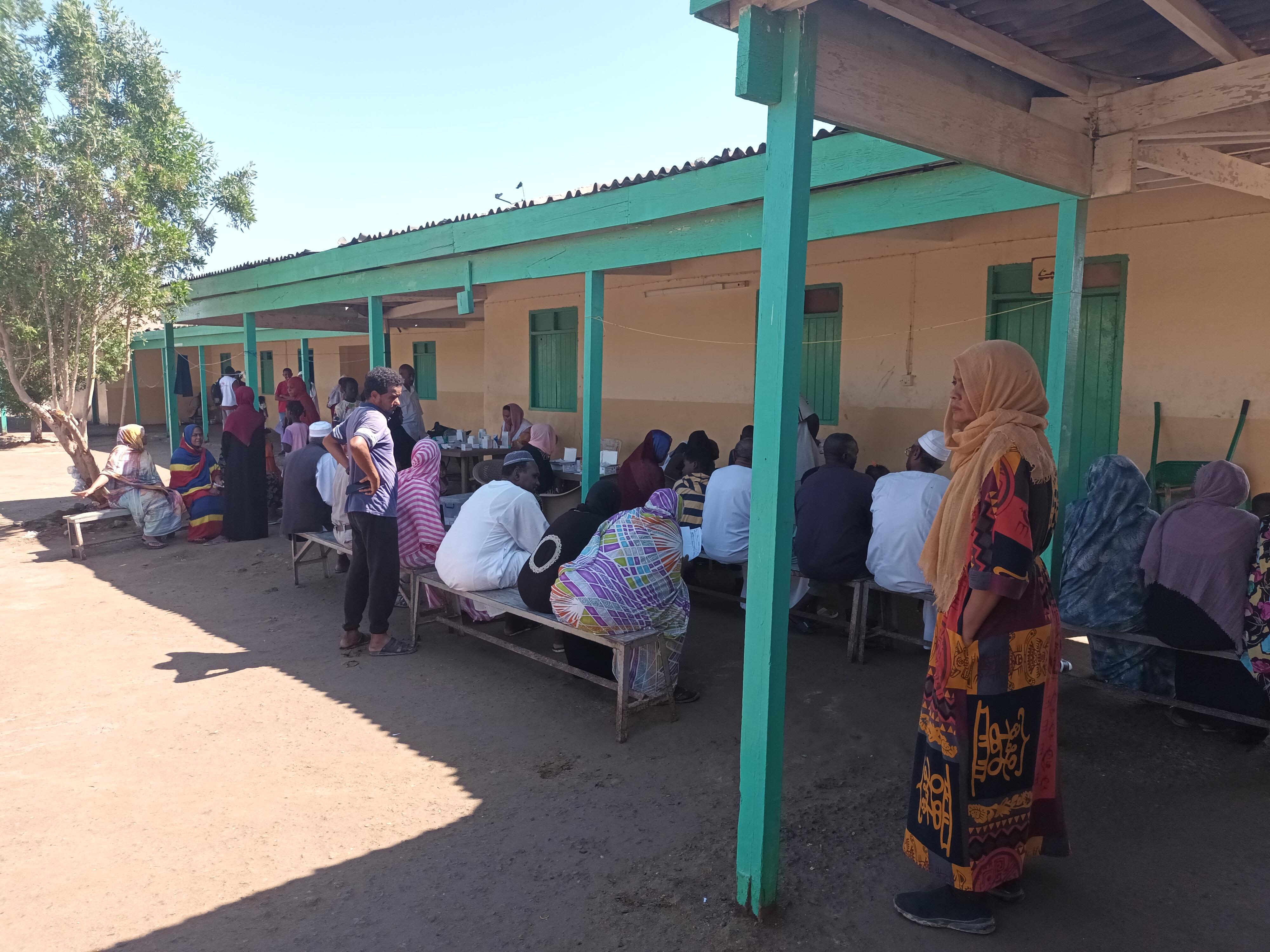
A Community of Support
A key part of MSF's response is health promotion with the support of community healthcare workers who are at the same time from among those recently displaced to Port Sudan.
The health promoters have focused on hygiene promotion and health education for the prevention of communicable diseases as well as awareness-raising on sexual violence.
"This isn't my first stop on the displacement route. I fled from Khartoum to Wad Madani, and now I find myself once again displaced in Port Sudan.
Traveling across Sudan and meeting new faces always filled me with joy, yet this displacement from one location to another is just a nightmare.
But I am trying to find meaning in my presence here in Port Sudan, so I joined MSF as a health promoter for the displaced people. As a nurse, I saw this role as an opportunity to transform the theoretical concepts of humanitarian work which we studied at university into practical action.
MSF's decision to recruit health promoters from within the refugee community is a good one, as we are well-placed to relay the accurate health information to those who fled alongside us, sharing their pain, and understanding their needs. But the humanitarian organizations offering their support are not the only supporter in this area. This role is complemented by the remarkable efforts of host communities, who are contributing their utmost.” Mohamed Alaa Aldeen, Sudanese health promoter with MSF in Port Sudan.
"This isn't my first stop on the displacement route. I fled from Khartoum to Wad Madani, and now I find myself once again displaced in Port Sudan.
Traveling across Sudan and meeting new faces always filled me with joy, yet this displacement from one location to another is just a nightmare.
But I am trying to find meaning in my presence here in Port Sudan, so I joined MSF as a health promoter for the displaced people. As a nurse, I saw this role as an opportunity to transform the theoretical concepts of humanitarian work which we studied at university into practical action.
MSF's decision to recruit health promoters from within the refugee community is a good one, as we are well-placed to relay the accurate health information to those who fled alongside us, sharing their pain, and understanding their needs. But the humanitarian organizations offering their support are not the only supporter in this area. This role is complemented by the remarkable efforts of host communities, who are contributing their utmost.” Mohamed Alaa Aldeen, Sudanese health promoter with MSF in Port Sudan.
Embracing this spirit of community engagement, MSF is working with hygienists from the internally displaced population at 11 gathering sites to set up a “hygiene management committee” that will ensure daily cleaning of pit latrines and good functioning of handwashing points.
Sustainable Support Is Needed
One of the most pressing challenges faced by the displaced people is the limited access to water, coupled with insufficient support from other humanitarian organizations to meet various needs. MSF is therefore calling on more humanitarian actors to join in supporting the displaced population in Port Sudan.
Port Sudan is not the sole displacement destination since April last year. In the past 10 months alone, approximately 8 million people have been displaced across Sudan and into neighboring countries, with the majority remaining within Sudan's borders.
----------------------------------
Currently, our teams work in 11 states across the country, providing emergency treatment including surgery, running mobile clinics for internally displaced persons as well as refugees, treating communicable and non-communicable diseases, providing maternal and paediatric healthcare including safe deliveries, providing water and sanitation services, and donating medicines and medical supplies to healthcare facilities.
